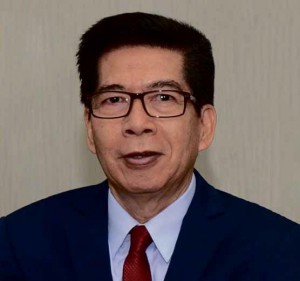Professionalizing association executives in PH
It’s one profession that children are not likely to think of when asked what they want to be when they grow up.
Despite the crucial role they play in modern society, even adults probably won’t look at it as their ultimate career goal.
Those who eventually take this role—at least in the local context—usually end up in the position either by sheer coincidence or as an extension of their previous career path.
We’re talking about association executives—those who manage membership associations, whether they be engaged in a common trade, profession or advocacy work.
They take care of the day-to-day needs of the members, organize their seminars and other events or act as a lobby group. Their operations are mostly funded by members, whether individuals or institutions. There are groups of bankers, exporters, treasurers, franchisers, athletes, artists, artisans, publishers, expatriates, car dealers, advertisers, finance executives, for example.
And the backbone of each association is the secretariat, comprised of people managed by these unheralded association executives.
“Managing an association or a chamber or any membership association isn’t easy,” says Octavio Peralta, secretary-general of the Association of Development Financing Institutions in Asia and the Pacific (ADFIAP). Each association is likened to a “little democracy,” with members as the citizens who have voting powers and who elect their leaders and try to influence policy-making.
But compared to the big task of managing such associations, these executives typically have no training and just learn on the job once put into this position, Peralta says, citing his own experience in ADFIAP.
He is a mechanical engineer by training who worked as a banker at the state-owned Development Bank of the Philippines.
He learned about running an association, which is different from the corporate setting, along the way.
Of course it helped that he was a former banker, given the membership that he handles.
Makati-based ADFIAP, as its name implies, is an organization of development financing institutions like DBP with 120 development banks in 42 countries and territories as members.
Because good governance is part of its advocacy, ADFIAP’s board supported the incorporation late last year of the Philippine Council for the Advancement of Association Executives (PCAAE) Inc. (www.pcaae.org), a network of professionals and institutions that manage and help sustain associations and other non-profit membership organizations involved in business, trade, philanthropic, scientific, medical, educational, technical, social welfare, agricultural and related activities.
While still in its infancy, PCAAE, is envisioned to become an independent institution over the long run.
With ADFIAP as the network’s incubator, Peralta acts as the founding chair of PCAAE. The network aims to engage with policy-makers, the academe, media and the public-at-large in its belief that cooperation and alliances bring forth more meaningful outcomes.
Beyond the Philippines, the dream is to have a pan-Pacific umbrella organization for such association executives, Peralta says.
However, there are few such organizations in the region to date.
Even South Korea and China are just starting to put up such national associations.
Over the long run, institutionalizing training, benchmarking and licensing of these executives is envisioned in this part of the world, tracking existing practices in the United States and Europe.
Citing Securities and Exchange Commission records, Peralta says there are more than 5,000 registered associations in the Philippines.
The figure does not even include homeowners associations or groups covered by other regulatory bodies, like tricycle drivers associations or informal grassroots organizations based in barrios or towns.
“There’s a big opportunity for group like this to learn from each other and really professionalize the work of an association executive,” Peralta says.
It’s written into the DNA of PCAAE to provide opportunities for the exchange of expertise, experiences and opinions trough meetings, communications, education, reserve and publications for non-profit organization management professionals.
By linking up all these associations, Peralta says the potential for sharing of best practices is great.
For instance, one group which is very good in fund-raising or retailing or communications can share its expertise with others.
As the umbrella group, PCAAE can also provide a venue for fledgling associations to learn basic skills in managing the association, like publishing a newsletter, writing a news release, planning corporate social responsibility projects or even performing backroom operations like accounting, budgeting and auditing.
Likewise part of PCAAE’s objectives as specified in its charter is to conduct competitions and award outstanding non-profit organizations in management achievement.
It thus seeks to develop and encourage high standards of professional conduct among non-profit organization management professionals.
As group, PCAAE vows to advocate for fair and appropriate treatment of non-profit organization management professionals and non-profit organizations before national and local governments.
For ADFIAP, the most compelling argument for the creation of PCAAE is to strengthen the governance of these association executives.
Like having separation of powers alongside checks and balance among the branches of government, Peralta says there is a need to uphold the independence of the secretariat from the board, which should otherwise just focus on its oversight functions and lead the association into its strategic direction.
PCAAE is open to different types of membership: individual working in associations, chambers and non-profit organizations and partner organizations or institutions that share its advocacy to professionalize the work of an association executive.
On Nov. 19 and 20, PCAAE is set to hold its second annual convention at the Philippine International Convention Center. The keynote speaker is Jesus Estanislao, chair of the Institute of Corporate Directors, who is expected to discuss what associations can learn from corporate and public governance best practices.
Foreign and local experts will also be there to talk about managing associations.
“This is continuing education that schools can’t provide. In our case, there’s no course that can lead you to be an association manager,” Peralta says.
By helping in institutional capacity-building, ADFIAP and PCAAE hope to contribute to nation-building.















